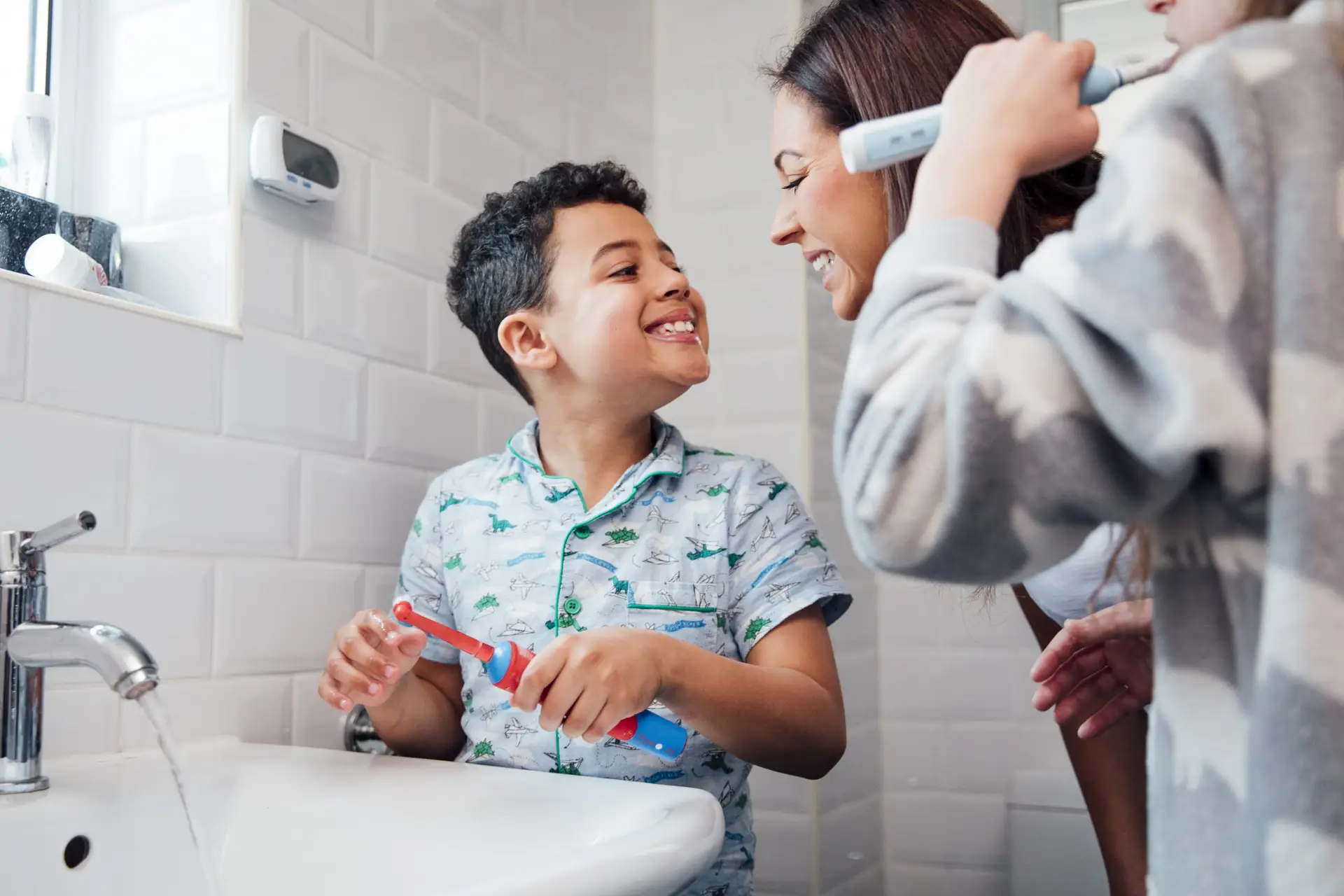I know things aren’t back to normal yet. Some regions of the world, even in the United States, are still struggling to curtail the ill effects of COVID-19. But I feel like we’ve learned some things over the past eighteen months about the importance of routines in coping with chaos and uncertainty—especially for our kids.
That’s why, despite some added precautions, our family is focusing on getting back to routines.
But what are the benefits of routines? And why are routines important for children’s development?
Do Routines Help Anxiety?
For children of all ages, routines provide a sense of security in an uncertain world, giving them predictable expectations and outcomes. Regardless of what is happening in the world at large, we can provide a sense of safety for our kids by establishing and sticking to routines.
I recently discussed this idea with a homeschooling friend of mine. As we talked, we both admitted eager anticipation for the school year to start. For me, that meant sending my last teenager off to high school. For her, it meant starting formal education training at home. Even though our methods are different, we both looked forward to the back-to-school routine.
You might be tempted to think that my anticipation came from “getting rid of” my teenager for a few hours during the day. But that couldn’t be further from the truth. On the contrary, I love having him around. He’s funny and entertaining. But he gets bored and out of sorts with not enough to do. Sending him off to school helps him establish a much-needed routine of waking early, attending class, going to football practice, coming home for dinner, and alternating between homework and a part-time job. He knows what to expect and it gives him—and me—comfort.
Routines can also stave off anxiety in teens by giving them an anchor in uncertainty. Dr. Brad Brenner, Ph.D. explains, “To cope with anxiety it’s essential to sit down, identify what’s worrying you, and address your concerns. When we create daily routines through exercising or changing our sleeping patterns, this allows our bodies to adjust and know what to expect.” He continues, “The same goes for mental routines—creating predictable scenarios through habits allows your mind to adjust, understand what to expect, and alleviate anxiety over the unknown.”
What Are the Benefits of Routines: A Sense of Accomplishment
In addition to security, children who adhere to a routine gain a sense of accomplishment. This is especially true when chores or jobs are part of the daily or weekly routine. You can even develop a schedule for kids. Children as young as two or three can be given simple tasks to accomplish on a routine basis—jobs like picking up toys or helping with laundry.
Several years ago, I volunteered to work with children from eighteen months to three years old in a local church congregation. The children would attend my class while their parents attended adult classes. The routine went something like this: sing a few songs, listen to a story, eat a snack, play with toys, and then clean up toys before their parents would arrive to take them home.
Even at this tender age, these children knew the routine and did their part to follow it. They could help pass out fish crackers, throw away napkins, and pick up toys at the end of the class. And often, what began as a scary experience for them on their first or second visit quickly turned into something familiar and anticipated because of the well-established routine.
And the outcome is no different for teens. The routine of daily piano practice yields polished piano skills, an accomplishment worth extolling. The routine of regular exercise yields cardiovascular strength and increased muscle mass, a noteworthy accomplishment. The routine of daily studying yields good grades and chances for future scholarship money to technical colleges or universities, accomplishments worth the effort. In each case, the routine facilitates the accomplishment.
Why Are Routines Important for Children’s Development?
I was never much of a self-help-book type of mom when my kids were little. I could barely keep up with all crazy, let alone have time to read about it in my spare time. But I did make one exception to that rule. My daily routine for roughly ten years of early married life revolved around ideas explained in the book Healthy Sleep Habits, Happy Child by Dr. Marc Weissbluth, M.D.
While this book has been updated since my time with infants and toddlers at home, I’m sure the message is the same. Establish consistent sleep schedules for babies and young children, and those routines will help them developmentally. The same principle applies to many different routines. Anecdotally, we were all better off in our household when our babies and toddlers stuck to their sleep and other routines.
And because teens are still developing their prefrontal cortex—the part of the brain that “plays a role in the regulation of complex cognitive, emotional, and behavioral functioning”—they need the structure of routines to help them avoid too-risky, inconsistent, or detrimental behavior. Routine provides teenagers with a safety net when deciding how to fill time. Consider routines for sleep, nutrition, and exercise for your kids, even in their teenage years.
How to Create a Good Routine and Schedule for Kids
According to the website Learning Potential, here are some great ideas for creating a good routine for children of all ages.
“The key is to involve [children] in the planning so they feel ownership. Here are some tips:
- “set a daily schedule with the same wake-up times and bedtimes for each school day—and stick to them
- “make study time part of your teenager’s daily routine, with more time allocated for study when assignments or exams are coming up
- “factor in time off—knowing there’s a reward for all that hard work is a great motivator
- “make it visual—draw up a chart, keep a day planner on the fridge, record the routine on your teen’s phone or computer
- “include your teenager’s deadlines for school assignments and exams on your calendar or planner so they can see what is coming up
- “practice, practice, practice—it might sound obvious, but the only way to make a routine stick is to be routine about it!
- “don’t worry if you miss a beat, no one’s perfect. If the day does not go to plan, just smile, stay positive and start again the next day.”
Start Small
If you’re not sure where to start with establishing and enforcing routines with your kids, start small. Don’t make a big deal out of what you expect or hope to gain from the structure of routines. Just pick something and give it a try.
Plan to eat dinner together as a family at a consistent time and place. Set a preferred bedtime. Schedule regular study and play hours in the day. Whatever it is, just start small. Experts claim that consistency over an extended period of time creates habits. If you want to create routines that stick, consistency is the key.
The important thing is to make routine a part of daily life for your kids. Even if the world around them continues to shift and change, they can count on the benefits of routine to buoy them up and see them through until things—hopefully—get back to normal.


